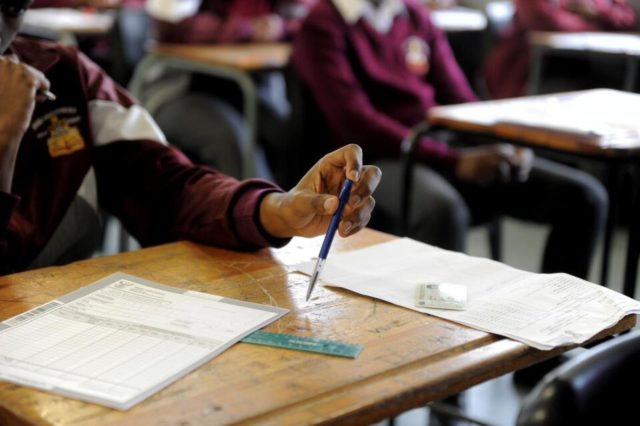Department of Basic Education in initiative to bridge the gap created by the Covid-19 pandemic by providing matric pupils with catch-up programme content that will help them in preparing for their exams.
“DON’T panic, we are here to assist you.”
This is the assurance of the Department of Basic Education, the private sector and broadcasters who have partnered in an initiative to help the matric class of 2020 catch up on the time lost during the lockdown.
On Tuesday, the Department of Basic Education launched the Woza Matrics catch-up programme, a free-to-air television initiative to assist Grade 12s ahead of their matric exams scheduled to start in November.
The department said the 12-week programme will provide support and quality educational content in life sciences, mathematics, physical sciences, maths literacy, economics, accounting, geography, English first language, history and business studies.
Starting from Tuesday, September 1, SABC, all DSTV packages and OpenView (channel 122) will broadcast the Woza Matrics catch-up programmes from 8am to 10am and 1pm to 3pm every day, seven days a week. The programming will also be made available on DStv Catch Up.
A link for the support materials will be made available on September 1.
The class of 2020 will embark on the exams after the Covid-19 pandemic denied them enough time in the classroom.
While some have been affected more than others, the private sector and television stations have partnered with the Department of Basic Education to bridge the gap created by the Covid-19 pandemic by providing matric pupils with catch-up programme content that will help them in preparing for their exams.
Launching the programme, Basic Education Minister Angie Motshekga applauded the support provided by the sponsors and educational content providers such as Digicampus, Mindset and Monyetla Trust, as well as the Programme for Improved Learning Outcomes (PILO) for their role.
Motshekga said that almost 13 million pupils, including some 1.2 million matrics, had fallen behind the curriculum.








